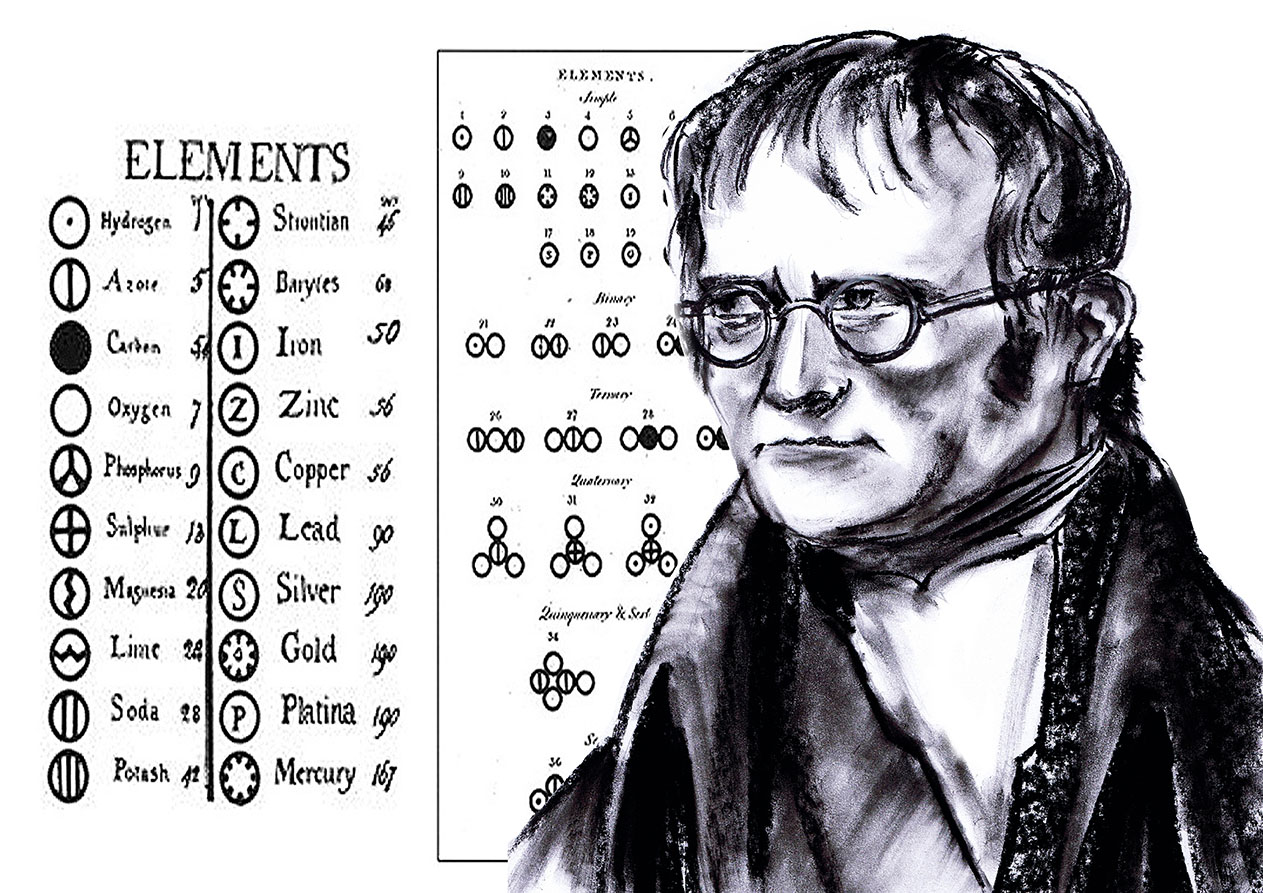

John Dalton was an English chemist and physicist who lived from 1766 to 1844. He is best known for developing the atomic theory of matter, which states that all matter is made up of tiny particles called atoms. Dalton's atomic theory was a major breakthrough in chemistry, and it is still used today to explain the properties of matter.
Dalton was born in Eaglesfield, England, and he studied mathematics and science at the University of Edinburgh. After graduating, he taught mathematics and natural philosophy at the New College in Manchester. In 1787, Dalton published his first paper on the atomic theory of matter.
Dalton's atomic theory proposed that all matter is made up of tiny particles called atoms. Atoms are the smallest unit of matter that can exist. They are indivisible and indestructible. Atoms of the same element are identical, but atoms of different elements are different.
Dalton's atomic theory was based on his experiments with gases. He found that gases always combine in the same proportions by mass. This led him to believe that gases must be made up of tiny particles that combine in fixed proportions.
Dalton's atomic theory was a major breakthrough in chemistry. It helped to explain the properties of matter and it laid the foundation for modern chemistry. Dalton's atomic theory is still used today to explain the properties of matter.
John Dalton was an English chemist and physicist who is best known for his atomic theory.

There are no other forms of the word "John Dalton" other than the full name itself.
"John" is a masculine given name that is derived from the Hebrew name "Yochanan", which means "God is gracious".
"Dalton" is an English surname that originated as a habitational name from any of the places called Dalton, from the Old English personal name Dalton + tun "settlement".
So, the name "John Dalton" literally means "God is gracious of the Dalton settlement". This is a fitting name for a man who made such significant contributions to science.
What is John Dalton famous for?
Question:
Who is John Dalton and what significant contributions did he make to the field of science? Explain Dalton's atomic theory and its impact on our understanding of the nature of matter.
Answer:
John Dalton was a British chemist and physicist who made a profound impact on the field of science with his revolutionary atomic theory. In the early 19th century, he proposed a groundbreaking model of matter that laid the foundation for modern chemistry.
Dalton's atomic theory posited that matter is composed of indivisible particles called atoms, each with a specific mass and properties. He suggested that atoms combine in simple whole-number ratios to form compounds and that chemical reactions involve the rearrangement of atoms rather than their creation or destruction.
This theory had a transformative impact on our understanding of the nature of matter and chemical reactions. It provided a systematic framework for explaining and predicting the behaviour of elements and compounds, helping chemists make sense of the complexity of the natural world.
Dalton's work initiated the development of modern atomic theory, which has since evolved with new discoveries in subatomic particles. His ideas spurred further research, leading to the discovery of electrons, protons, and neutrons within atoms.
Overall, John Dalton's atomic theory revolutionised chemistry, paving the way for deeper insights into the structure of matter and the principles governing chemical interactions. His contributions remain foundational to the study of chemistry and continue to shape our understanding of the fundamental nature of the universe.
Address
Developing Experts Limited
Exchange Street Buildings
35-37 Exchange Street
Norwich
NR2 1DP
UK
Phone
01603 273515
Email
hello@developingexperts.com
Copyright 2025 Developing Experts, All rights reserved.